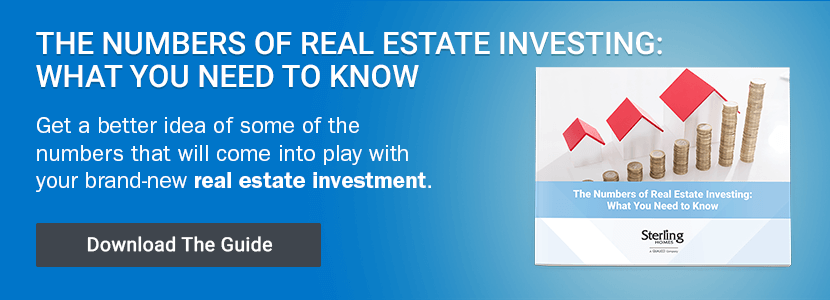Mortgages and Investing: How Does It Work?

Wouldn’t it be nice if you could make money using someone else’s money?
You can! That’s what happens when you take out a mortgage to purchase an investment property. Sure, you need to put some of your own money down for the down payment, but the bulk of your purchase is borrowed. You can then use the income you earn from tenants to pay down the principal balance and build up your equity.
Getting started in real estate investing can feel overwhelming at first, but we’ll break things down to help you decide if this is the right choice for you.

The Details Matter
The first thing that we have to get out of the way is that the rules for borrowing money for an investment property changed based on certain factors.
The first is whether or not the property is “owner-occupied”. This means that you as the owner are living on the property. Some examples of this are living in the main part of the home and renting out a basement suite or living in one half of a duplex and renting out the other. Lenders tend to treat this type of situation more favourably because they assume that the presence of the owner means that the property is better taken care of.
The other big factor is the number of units in the property. Typically, properties that have between one and four units are considered “residential”, and they qualify for residential mortgages. Those that have five or more units are considered “commercial”, and the owner needs a commercial mortgage for this type of property.
As we go over the following sections, we’ll bring up the differences in these types of situations.
Down Payment Options
Getting together the down payment is the first hurdle you’ll have to overcome. You’ve probably heard that you need to have at least 20 percent down to purchase a rental property. This is true if you’re looking for a place that you will not live in.
However, a lot of people tend to start smaller by adding some type of income suite onto their private property. If this is the type of investment you’re thinking about making, we have good news for you. You may be able to qualify for a conventional mortgage with just a 5 percent down payment if there are just two units on the property (one that you’ll live in and one that you’ll rent out). If you’re looking at a property with three to four units, you can probably qualify for a mortgage with a 10 percent down payment.
This makes it a lot more affordable to get started in real estate investing. Once you build up equity in your first place, it’s easier to get the 20 percent you’ll need for your next investment property.

Mortgage Types
The mortgages that you can take out for your income properties are usually quite similar to those available to traditional homebuyers. This means that you can look for fixed-rate or variable-rate mortgages, open or closed mortgages, and so on.
The big difference is between residential and commercial mortgages. As we mentioned before, homes that have more than four units will have to have a commercial mortgage, while those with four or less will qualify for residential mortgages. In general, commercial mortgages tend to have higher interest rates and are harder to qualify for. If you can get a residential mortgage, that’s the better option, especially for first-time investors.
Special Rules for Properties Over $500,000
Including rental units in a property can increase the build cost. Sometimes, it goes over $500,000, and so you might need to take out a jumbo mortgage. In this case, you’ll have a higher interest rate. Additionally, you may need a higher percentage down payment for the amount of money above $500,000. For instance, if you’re purchasing a $600,000 property that you’ll live in, your minimum down payment is 5 percent of $500,000 plus 10 percent of $100,000.

Qualifying for the Mortgage
In many ways, qualifying for a mortgage for rental properties is similar to qualifying to purchase your own home. The lender will look at a combination of your income, your debt load, and your credit score. You will need a high credit score to qualify for a mortgage on an income property, and the more properties you own, the harder it will be to qualify for an additional mortgage (because you have a higher debt load).
Lenders will usually factor some or all of the potential rental income into their calculations, but the process for doing this can vary by lender. Be sure to ask as you research your options.
Getting a mortgage for your own home is stressful enough, but getting one for an income property can seem even harder. The good news is that the process is fairly straightforward and there are plenty of people willing to help you along the way. Speak to one of our Area Managers to get started today.
About the Author:
Learn more about:
Sterling Homes - Home Builder in Edmonton
Start The Home Buying Process Now












